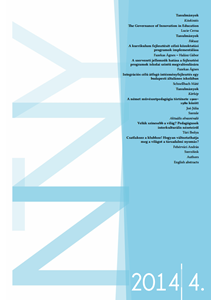Absztrakt
The education sector is often considered not prone to innovation. However, recent research indicates that education can be as innovative as other sectors, if the right conditions and governance structures are in place. This article examines the governance of innovation in education systems. It traces the role of innovation for education, presents how innovation is measured and analyses how it can be governed successfully. Education systems operate under considerable governance complexity which has consequences for questions of accountability, trust, professionalism and leadership. This article proposes a simple framework of different governance elements and examines what kind of accountability, leadership, trust and professionalism may be suitable to promote and sustain innovation in education. The article indicates that, for instance, horizontal accountability combined with strong professionalism and trust may generate a culture of innovation, especially when supported by strong learning and political leadership. Nonetheless, the context and specific conditions in countries and education systems need to be taken into consideration as there is no one-size-fits-all solution. The findings are based on OECD publications and existing literature on education, governance and innovation.
